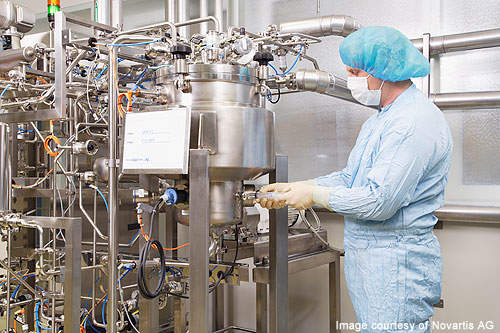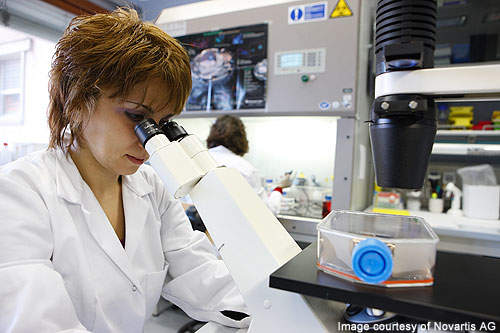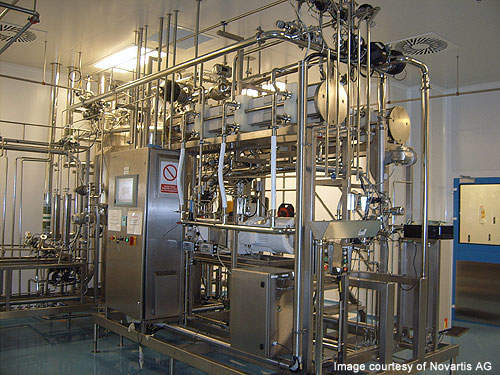Menveo is an active immunisation vaccine indicated for the prevention of invasive meningococcal disease caused by serogroups A, C, W-135 and Y. The vaccine was developed by Novartis AG.
On 22 February 2010, the vaccine was approved by the US Food and Drug Administration (FDA) for the prevention of invasive meningococcal disease. On 15 March 2010, the vaccine was approved by the European Commission for use against meningococcal disease in 11 to 55 year old people.
Novartis is planning to expand Menveo indication to infants and children aged between 2 and 10 years. The company has already submitted a supplemental biologic licence application to FDA for the use of Menveo in children aged from two to ten. The application was approved in January 2011.
Novartis has submitted an application in Canada for use of Menveo in children older than two. It also plans to submit an application and additional trial data to the European Commission in 2011 for use of the drug in infants and children.
Invasive meningococcal disease
Invasive meningococcal disease is a severe bacterial meningitis that occurs in the lining of the brain or spinal cord. The disease is a life-threatening bloodstream infection that usually occurs as a single or isolated event. It is predominantly caused by serogroups A, B, C, Y and W-135. It can affect infants, teenagers and adults over the age of 60.
The common symptoms of the disease are severe headaches, high fever, stiff neck, nausea, confusion, vomiting and sleepiness. The disease is fatal and progresses very rapidly within 24 to 48 hours after the onset of symptoms.
The disease infects more than 500,000 people worldwide each year and causes more than 50,000 deaths. One in seven patients dies from meningococcal disease and one in every five survivors of the disease suffers from serious and permanent side effects. The side effects of the disease include seizures, limb amputations, learning disabilities, paralysis and hearing loss. In the US between 1,000 and 3,000 cases of the disease are recorded in a year.
Menveo
Menveo works by helping the body to produce its own antibodies against meningococcal bacteria. The vaccine protects the body against A, C, W135 and Y bacterial strains. The body usually takes two weeks after the vaccination to develop protection against Neisseria meningitidis.
Clinical trials
Novartis in collaboration with Oxford University has conducted phase II clinical trials on Menveo in the UK from June 2009 to October 2010. The study was conducted on 150 healthy adults aged 18-70 years. The purpose of the study was to compare and evaluate the immune response of the protein-polysaccharide conjugate vaccine (MenACWY) and meningococcal plain polysaccharide vaccine (MenACWY PS) against four related bacteria.
In collaboration with the Health Protection Agency, Novartis conducted another phase II clinical trial on the vaccine from December 2009 to December 2010. The study, which enrolled 75 healthy adults, was aimed at measuring the immune response to vaccination after administering three doses of meningococcal B vaccine and a single dose of a meningococcal ACYW conjugate vaccine.
The company initiated phase II/III clinical trials on the vaccine in November 2010. The study will enrol 600 participants and will look at the boosting effects of two Meningitis ACWY vaccines. It will be completed by December 2011.
In March 2008, a Phase III trial in children aged between two and ten was initiated. It evaluated the immune response of Menveo in comparison with a licenced polysaccharide meningococcal vaccine in healthy children. Over 2,907 patients were enrolled in 67 centres in the US and Canada. The trial was completed in October 2009.
Another Phase III clinical trials on the drug was launched in nine centres across the UK in September 2010, and is scheduled to be completed by January 2012. The study will enrolled nearly 3,000 participants aged 18 to 24.
The primary outcome measure is to investigate the prevalence of Meningitidis A, B, C, W and Y strains after administration of single and double doses of the vaccine.
The secondary outcome measure is to investigate the safety of the vaccine and evaluate human Serum Bactericidal Assay levels after injection of the vaccine.
In October 2010, Novartis has presented phase III clinical trial data on Menveo at the 48th annual meeting of the Infectious Disease Society of America in Canada.
The results showed that the infants administered with the vaccine achieved an immune response against meningococcal serogroups W135, Y, C and A. The vaccine was well tolerated when administered alone or when co-administered with paediatric vaccines.





